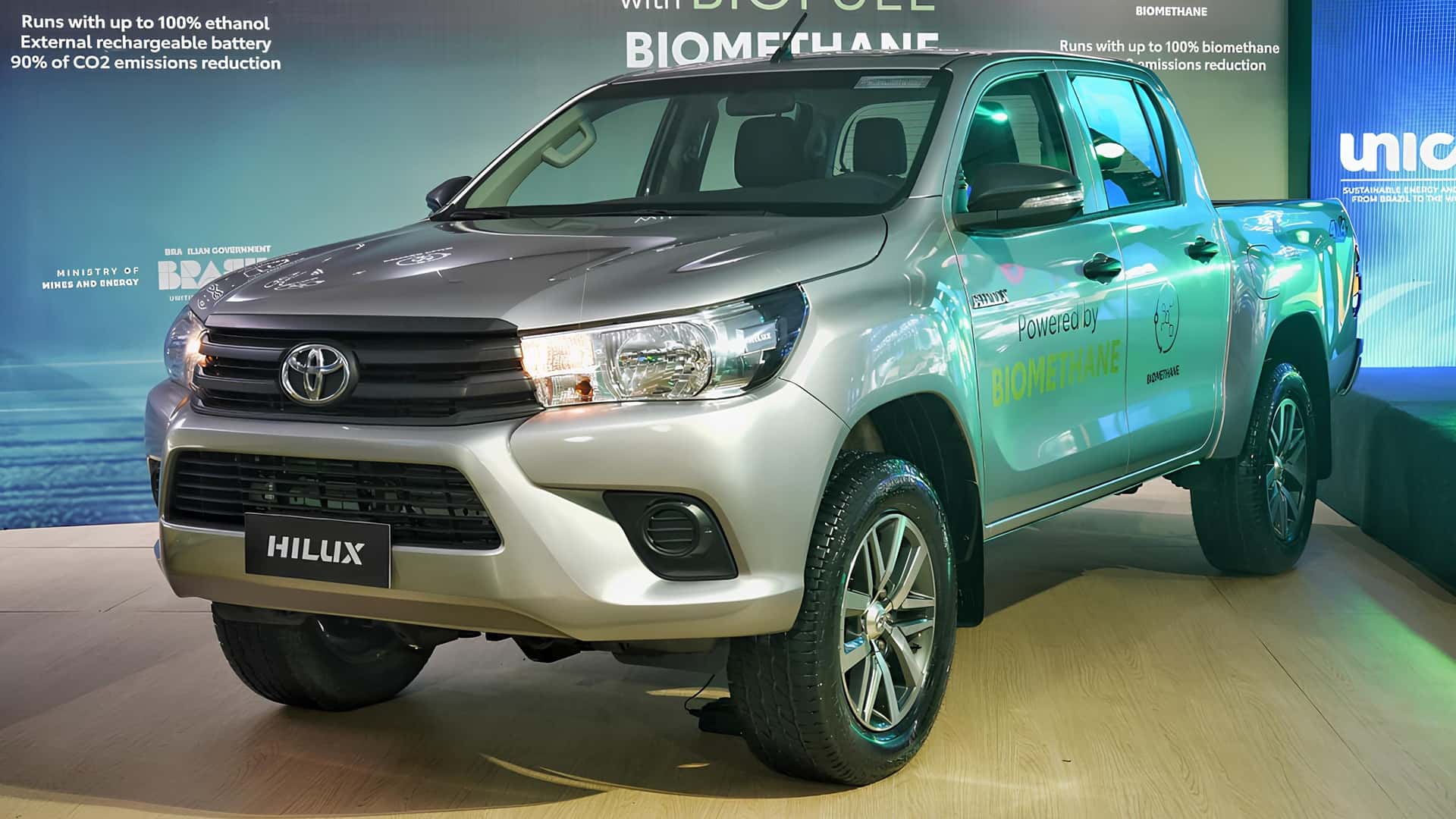October 3, 2024. The G20 Summit, the group that brings together the 20 most powerful countries in the world, is celebrating a new edition in Brazil these days. The city of Foz de Iguazú, next to the Falls, is the venue for this meeting where economic and environmental policies are being discussed to combat climate change.
This was the setting that Toyota chose to present the first prototype of a version of a pick-up that several of the brand’s customers have been demanding for some time: the biomethane gas-powered Hilux.
In this case, the gas was obtained by degrading sugar cane waste. This organic matter was used because it comes from the waste for the production of ethanol (alcohol), a biofuel that is common in Brazil and that already powers other Toyota vehicles.
The Japanese brand believes that biomethane is a fuel that can be produced in a relatively homely manner in rural areas, using biodigesters that process organic waste from crops and consumption by people and livestock.
Rafael Chang, CEO of Toyota for Latin America and the Caribbean, was at the forefront of the presentation of the Hilux Biomethane prototype in Iguazú: “Toyota’s trajectory is marked by its pioneering spirit and evolution in the development of new technologies. We were pioneers in the launch of hybrids and flex hybrids, in full alignment with the challenges of decarbonization. Based on the Brazilian experience with biofuels, we can contribute to the transition towards more sustainable mobility, offering solutions that positively impact the environment and society as a whole.”




